- News
- Reviews
- Bikes
- Components
- Bar tape & grips
- Bottom brackets
- Brake & gear cables
- Brake & STI levers
- Brake pads & spares
- Brakes
- Cassettes & freewheels
- Chains
- Chainsets & chainrings
- Derailleurs - front
- Derailleurs - rear
- Forks
- Gear levers & shifters
- Groupsets
- Handlebars & extensions
- Headsets
- Hubs
- Inner tubes
- Pedals
- Quick releases & skewers
- Saddles
- Seatposts
- Stems
- Wheels
- Tyres
- Tubeless valves
- Accessories
- Accessories - misc
- Computer mounts
- Bags
- Bar ends
- Bike bags & cases
- Bottle cages
- Bottles
- Cameras
- Car racks
- Child seats
- Computers
- Glasses
- GPS units
- Helmets
- Lights - front
- Lights - rear
- Lights - sets
- Locks
- Mirrors
- Mudguards
- Racks
- Pumps & CO2 inflators
- Puncture kits
- Reflectives
- Smart watches
- Stands and racks
- Trailers
- Clothing
- Health, fitness and nutrition
- Tools and workshop
- Miscellaneous
- Buyers Guides
- Features
- Forum
- Recommends
- Podcast
TECH NEWS
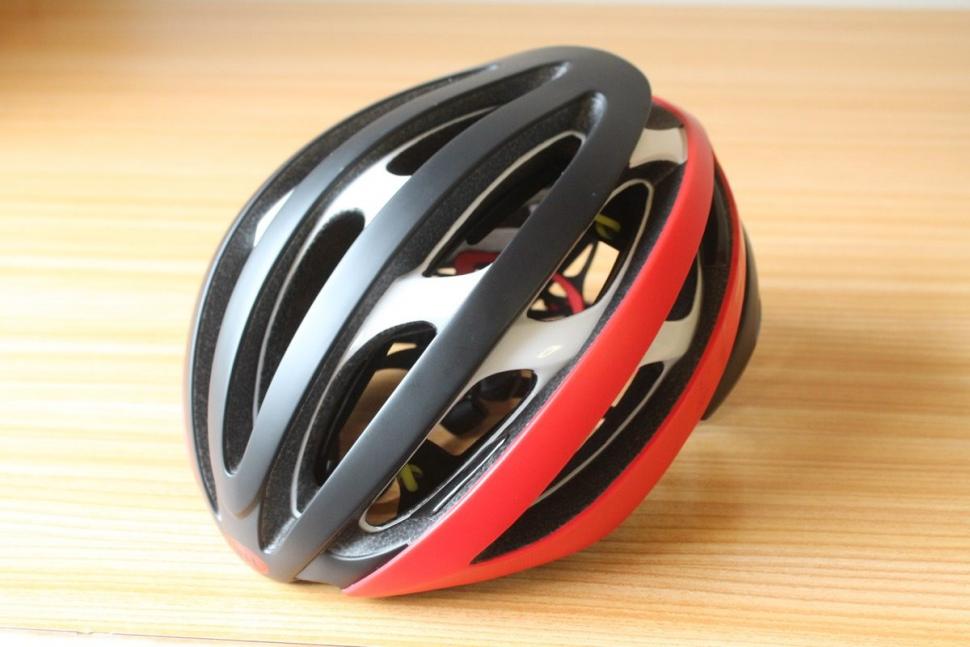 Bell Zephyr helmet - 4.jpg
Bell Zephyr helmet - 4.jpgBell launches Zephyr, its “most advanced road helmet ever”
Bell is launching a new high-end helmet called the Zephyr which it claims is its most advanced road model ever thanks to a new manufacturing technique called Progressive Layering Construction, and a new MIPS-integrated fit system. I’ll explain those terms in a mo, so hang in there.
Bell claims that the results are (in the brand’s own words):
• Less bulk and lower weight.
• Great ventilation.
• An amazing, highly tunable fit.
“We wanted to go for the most comfortable, the most balanced, and the most sophisticated helmet we could make, and that’s exactly what we have here,” said Bell’s Sean Coffey. “In our experience of energy management, this is currently the best helmet we can make.”
Energy management? He’s talking about the way the helmet performs if you crash.
Okay, so that Progressive Layering Construction thing… Bell uses a patented design here comprising a high density EPS (expanded polystyrene) outer shell, and a lower density EPS inner shell next to your head. The two elements are produced separately, each in-moulded in its own polycarbonate shell, before being joined together.
This (above) is a cutaway showing the two different layers of EPS and the Float Fit Race system.
“By using two different density layers of EPS foam in a helmet design, engineers can custom tune impact management and design a better helmet with fewer compromises,” says Bell.
The Zephyr helmet features a MIPS liner integrated into the Float Fit Race system.
Crikey! More jargon. Let’s deal with the Float Fit Race system first. That’s the bit of the helmet that you can adjust to change the fit. You get three points of adjustment here: a clicky dial at the back, 22mm of up/down movement of the cradle at the back of your head, and you can also alter the lateral position of each of the two occipital pads (at the rear) independently – so you can have the pad on the right positioned further out than the pad on the left, for example, if that better suits the shape of your head.
I hope you’re keeping up at the back there!
MIPS is a slip plane system we’re seeing on more helmets these days for absorbing certain rotational forces in the case of a crash. Brands will often offer a version of a helmet that incorporates MIPS, and a version that doesn’t.
With the Zephyr, though, Bell says that MIPS is integrated into the new Float Fit Race system. It’s not an add on, it’s part of the original design. The idea is that this “manages a wide range of impacts while giving the designers the opportunity to create larger and more effective vents”.
It also makes for a lower profile and a closer fit; adding MIPS usually makes a helmet 1.7mm tighter.
The Zephyr features X-Static antibacterial padding, one interesting feature being that a tab of that padding extends from the inside of the helmet across the bottom of the EPS right at the front of the helmet. The idea is that sweat moves down to this section of padding because of the angle of your head, and then drips off without landing on your eyewear.
Bell reckons that the Zephyr is as effective as the Giro Synthe in terms of providing ventilation, and that helmet has really impressed us in the past.
The lightweight straps sit flat against your face and neck thanks to Bell’s Tri-Glide dividers. As well as adding to the neatness, Bell says that these improve aerodynamic efficiency – twisted straps add drag – but it doesn’t make any overall aero claims for the helmet.
The CE (European safety standards) version weighs a claimed 263g (size medium). That’s not the lightest helmet out there, but it’s pretty light – and bear in mind that all MIPS helmets are a little heavier than non-MIPS equivalents.
The Zephyr, which replaces the Gage in the Bell line-up, will retail at £199.99. Several colour options will be available from October, and a full reflective option, the Zephyr Ghost, will come out later on at a slightly higher price.
If you don’t want to spend that much, the new Stratus, available in both MIPS and standard versions, is a less costly alternative that’s based on the Zephyr. Rather than the Float Fit Race system, the Stratus features a simpler Float Fit system which doesn’t have the lateral adjustment of the occipital pads, for example.
The CE version of the Stratus with MIPS weighs a claimed 285g and is priced at £124.99, while the non-MIPS model is £99.99.
I’ve had the chance to wear the Bell Zephyr on a couple of rides in Switzerland and Germany over the past few days. I don’t want to preempt a full test – that’ll come in a few weeks – but initial impressions are positive. Very positive. It certainly feels airy and, although it’s a relatively small thing, I really like the fact that the dividers mean the straps sit flat (not a feature unique to Bell). Anyway, more on the performance when things have calmed down a bit after Eurobike.
Mat has been in cycling media since 1996, on titles including BikeRadar, Total Bike, Total Mountain Bike, What Mountain Bike and Mountain Biking UK, and he has been editor of 220 Triathlon and Cycling Plus. Mat has been road.cc technical editor for over a decade, testing bikes, fettling the latest kit, and trying out the most up-to-the-minute clothing. He has won his category in Ironman UK 70.3 and finished on the podium in both marathons he has run. Mat is a Cambridge graduate who did a post-grad in magazine journalism, and he is a winner of the Cycling Media Award for Specialist Online Writer. Now over 50, he's riding road and gravel bikes most days for fun and fitness rather than training for competitions.
Latest Comments
- ChrisA 3 hours 28 min ago
Balance bike: £600 - brakes extra.
- LeadenSkies 3 hours 47 min ago
As a non local who occasionally has to cycle from St Ives to Cambridge, at a sedately average speed of 12mph, I have had to use alternative routes....
- don simon fbpe 5 hours 30 min ago
I'd go for 'the sun was in my eyes' as a defence, get away with murder with that one...
- PRSboy 7 hours 13 min ago
I have two aero bikes- an Argon18 Nitrogen and an Orro Venturi. I love the way they feel on the road. I also like the style of the deeper section...
- Rendel Harris 14 hours 50 min ago
They have here: results at 14.40. The aero bike was roughly fifteen seconds faster than a climbing bike on a descent of around 6 km, so about 3km/h...
- wtjs 15 hours 4 min ago
As I've also placed here the nutter Audi and white van drivers, I've decided to give those no-nonsense keep-the-country-moving BMW drivers a list...
- polainm 16 hours 8 min ago
100% this. Policing mentality is formed by social 'norms', and the cyclist witchhunting across social media is the UK norm. Close passing a person...
- David9694 17 hours 33 min ago
That's a clear 2 points awarded there, but I guess as there's now a 25% tariff you'll only get 1.5
- mark1a 17 hours 44 min ago
Fawkes Cycles is only local if you live near Oldham. That's nearly 300 miles away from me. Also, any retailer that doesn't participate in an...
- David9694 17 hours 46 min ago
Openreach under fire over delays to Amesbury cabinet repairs...
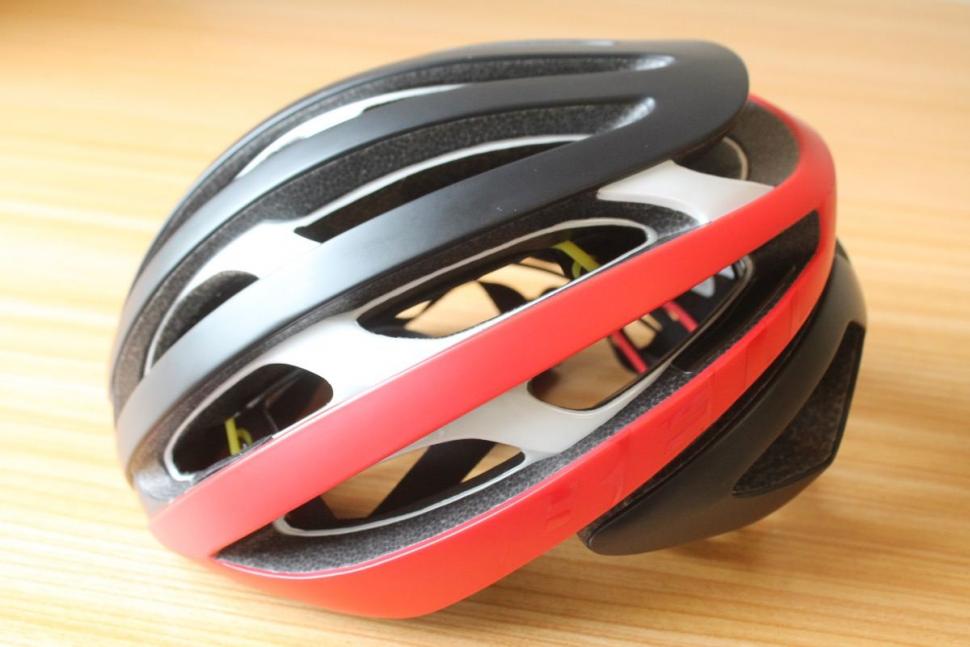
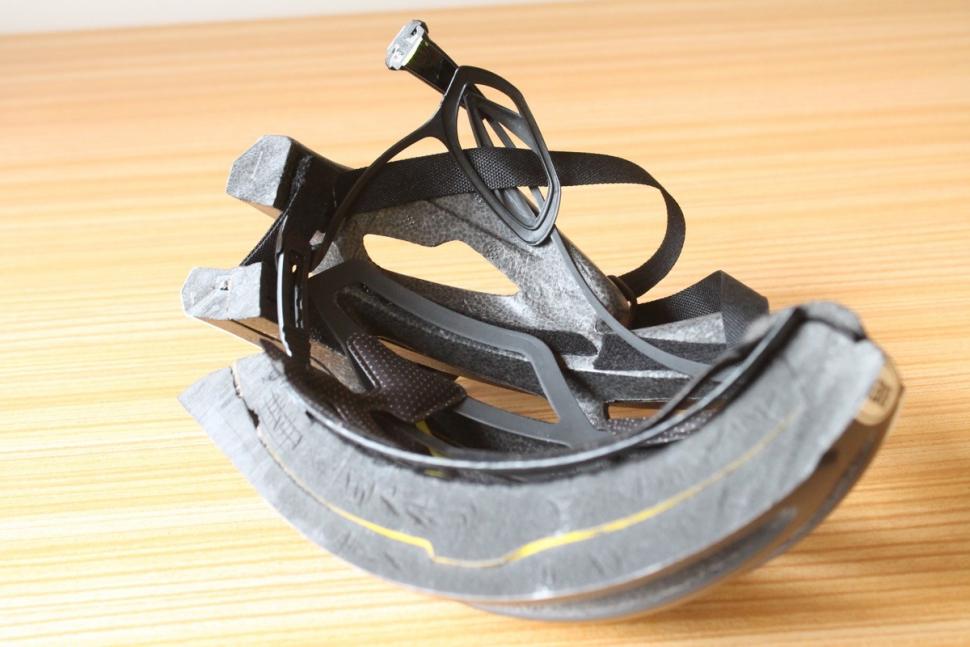

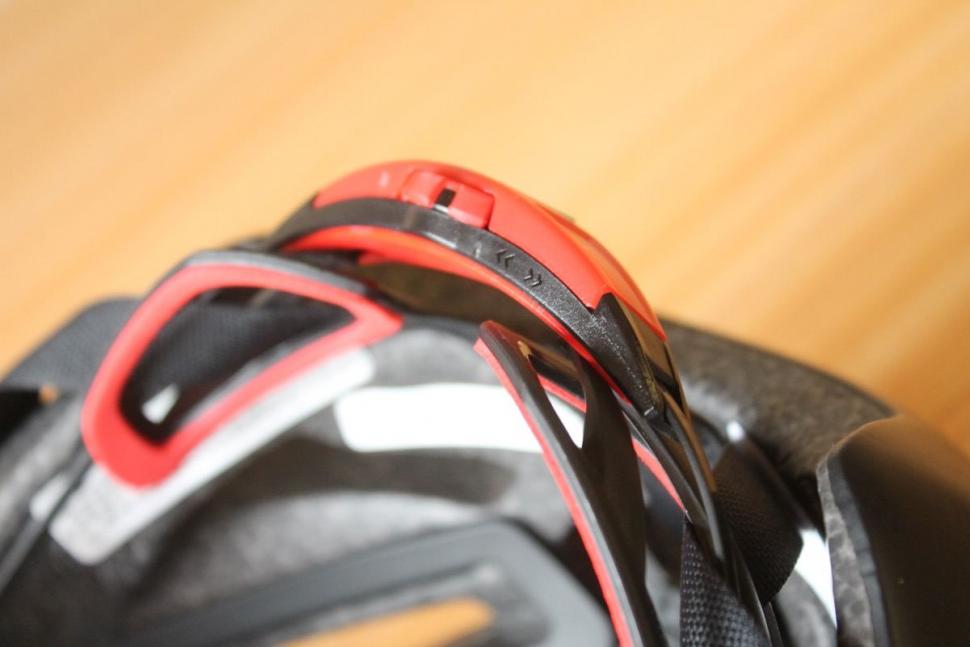
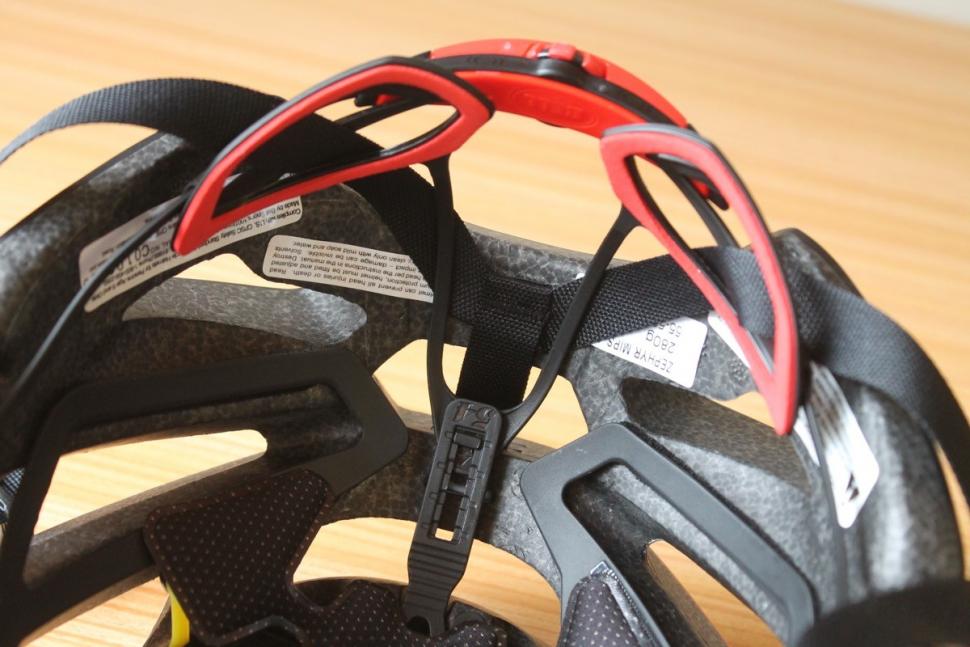
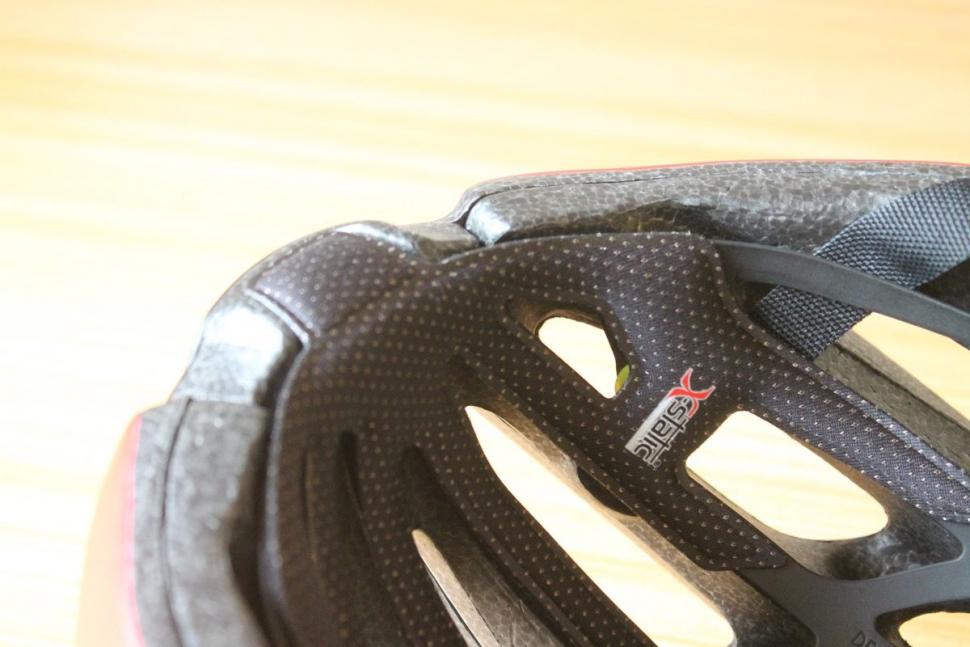
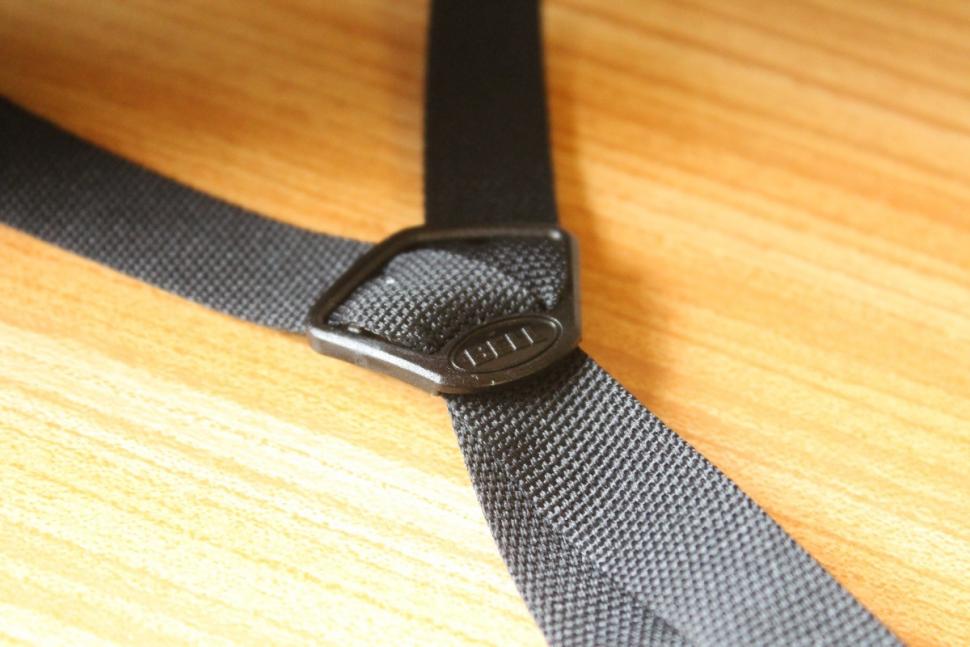
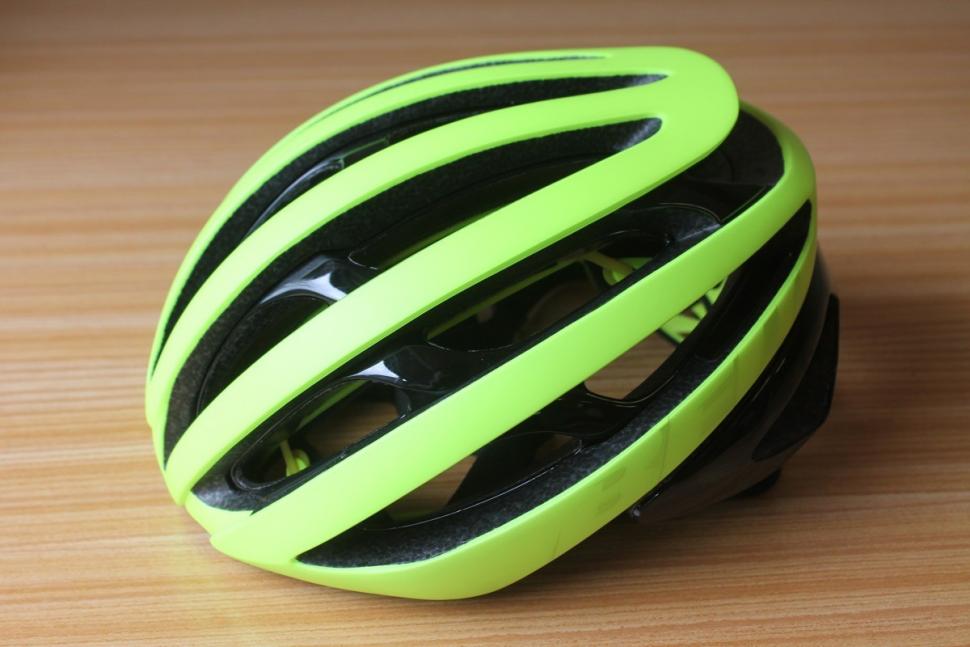
Add new comment
5 comments
Right, so it doesn't actually offer any more protection than any other helmet. It's just a bit lighter, a bit easier to fit, and £175 more expensive than a helmet that protects you just as well (which isn't saying much anyway).
Welcome to where other major helmet maufacturers were years ago.
I have a Bell Sweep. Decent lid, and looks good. Might try this one, as my Sweep is getting on a bit, although I can still get the foam pads separately.
Strange that it still looks like the same old bucket Bell having been making for years. Nothing new to see here, move along please.
So your saying it's a cycle helmet for people that may have an odd shaped head that roll along like an upside down subbuteo player in the event of a crash.
I think